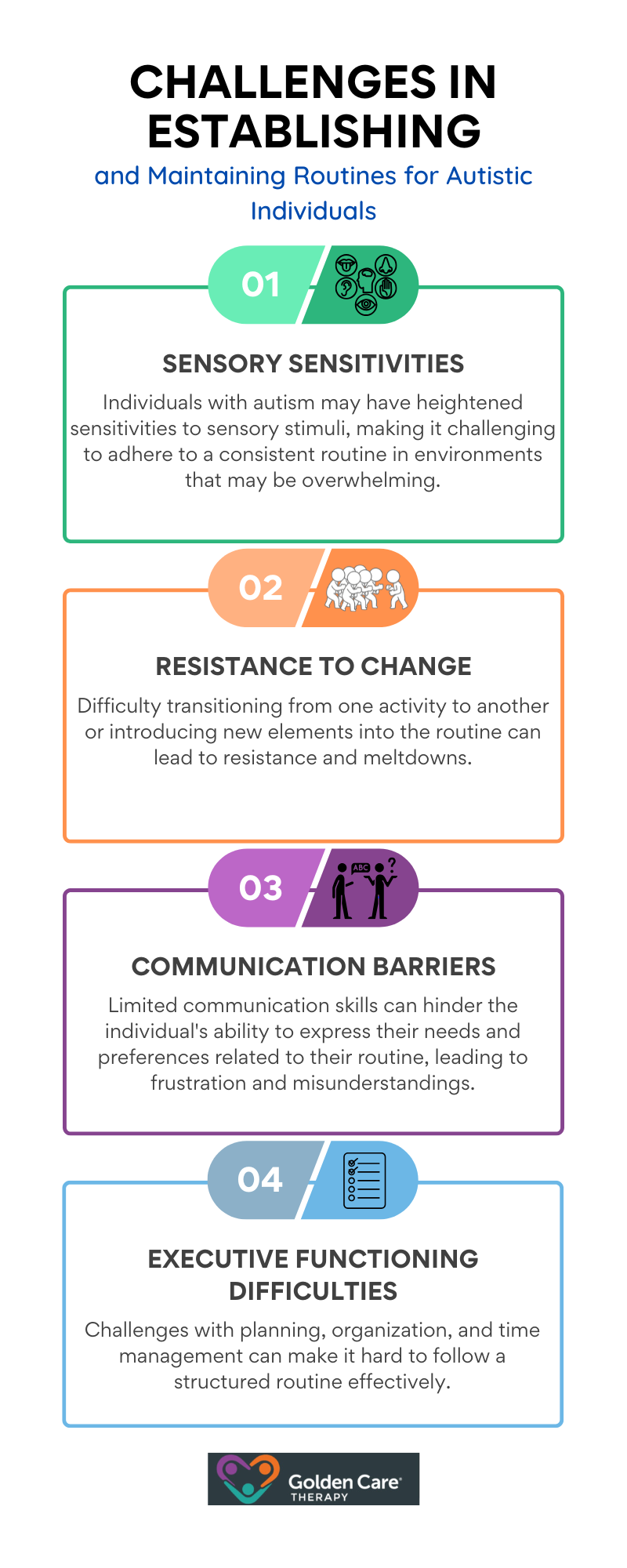Creating routines for children with autism can sometimes feel like a delicate balancing act, but there’s one powerful resource that can make a world of difference: parent involvement.
Parents bring a unique understanding of their child’s needs, preferences, and strengths, and this connection can play a key role in establishing routines that support growth, comfort, and stability.
When parents take an active part in shaping routines, children are more likely to thrive in ways that are meaningful to them.
Can Parent Involvement Help Autism Routines?
Yes, parent involvement can significantly help with autism routines. Active participation from parents can create a structured and supportive environment that enhances their child’s ability to adapt to routines. When parents are engaged, they can collaborate with therapists and educators to establish consistent practices at home and in other settings, reinforcing the routines that support their child’s development.
This consistency can help reduce anxiety and confusion, making it easier for the child to follow daily activities and transitions.
Furthermore, parents can observe their child’s responses to various routines and provide valuable feedback to professionals. This partnership allows for adjustments that cater to the child’s unique needs and preferences, fostering a sense of security and understanding.
Involving parents in creating and maintaining routines not only promotes their child’s independence and confidence but also strengthens the parent-child bond, ultimately leading to better outcomes for children with autism.
The Importance of Routine for Autistic Individuals
Routine provides a sense of structure and predictability for individuals with autism, offering a framework within which they can navigate daily tasks and activities. Consistent routines help reduce anxiety and uncertainty, promoting feelings of security and comfort.
For autistic individuals, routine serves as a guiding mechanism that fosters independence and autonomy in their daily lives.
While routines are beneficial for individuals with autism, there are inherent challenges in establishing and maintaining them. Some common challenges include:

Understanding the importance of routine and being aware of the challenges involved allows parents and caregivers to tailor their support to provide a nurturing and accommodating environment that fosters growth and development.
Benefits of Parent Involvement
The role of parents and caregivers is crucial in supporting autistic individuals in their daily routines. Parent involvement plays a crucial role in creating a positive and nurturing environment that fosters growth and development.
Let’s explore the specific benefits of parent involvement in autism daily living.
Building a Supportive Environment
Parent involvement in the daily lives of individuals with autism helps build an accepting and supportive society. By actively engaging with their child or loved one, parents can create a sense of security and stability, which is essential for promoting overall well-being and reducing anxiety.
Enhancing Communication and Social Skills
Parents and caregivers play a significant role in enhancing the communication and social skills of individuals with autism. Through consistent interactions, active listening, and modeling positive communication behaviors, parents can help their loved ones improve their ability to communicate effectively and engage in social interactions.
Improving Behavior and Emotional Regulation
One of the key benefits of parent involvement in autism routines is the positive impact it can have on behavior and emotional regulation.
Parents who are actively involved in their child’s daily routines can provide consistent support, implement strategies to manage challenging behaviors and help their loved ones develop coping mechanisms for regulating emotions.
Parental involvement not only enhances the quality of life for individuals with autism but also strengthens the bond between parents and their children. By creating a nurturing and supportive environment, focusing on communication and social skills development, and promoting effective behavior and emotional regulation, parents can make a lasting impact on the daily lives of individuals with autism.

Parental Guidance in Daily Routines
In terms of supporting autistic individuals in their daily routines, parental involvement plays a crucial role in ensuring a structured and supportive environment. By actively participating in daily activities and implementing specific strategies, parents can help enhance the overall well-being of their loved ones with autism.
Here are key components of parental guidance in daily routines:
Structuring Daily Activities
Structured routines provide individuals with autism a sense of predictability and security, which can help reduce anxiety and improve overall functioning.
Parents can create a visual daily schedule that outlines each activity or task in a clear and sequential manner. By establishing consistent routines and sticking to a schedule, parents can support their children in knowing what to expect throughout the day.
Using Visual Schedules and Cues
Visual schedules and cues are effective tools for individuals with autism to understand and navigate daily routines. These visual supports can be in the form of pictures, symbols, or written words that represent each task or activity. By incorporating visual cues, parents can help their child comprehend and follow the sequence of activities, promoting independence and self-regulation.
Implementing Reward Systems
Reward systems are motivational tools that can encourage positive behavior and reinforce desired actions within daily routines. Parents can establish a reward system by setting specific goals or expectations for their child and offering meaningful rewards for the successful completion of tasks.
This positive reinforcement helps individuals with autism stay motivated and engaged in their daily activities.
Incorporating structured routines, visual schedules, and reward systems into daily activities can significantly benefit individuals with autism by providing a sense of organization, clarity, and motivation. By actively engaging in these practices, parents can create a supportive and nurturing environment that promotes the well-being and success of their loved ones with autism.

How to Achieve Long-Term Success
Consistency in parental involvement is paramount when it comes to supporting individuals with autism in daily routines. By maintaining a steady and predictable level of engagement, parents can establish a sense of security and stability for their loved ones on the autism spectrum.
Consistency in parental involvement involves creating a structured and reliable environment for individuals with autism.
This includes establishing consistent daily routines, clear communication strategies, and a stable support system. By being present, attentive, and dependable, parents can help individuals with autism feel safe and secure in their day-to-day activities.
Tracking progress and making necessary adjustments are also key aspects of ensuring long-term success in supporting individuals with autism. By keeping detailed records of daily routines, behaviors, and achievements, parents can track the effectiveness of interventions and identify areas for improvement.
Regularly reviewing and adjusting strategies based on progress is essential for facilitating growth and development.
Lastly, celebrating achievements and milestones no matter how small plays a crucial role in reinforcing positive behaviors and fostering a sense of accomplishment for individuals with autism.
In the journey toward long-term success in supporting autistic individuals, consistency, progress tracking, and celebration of achievements are vital components that contribute to the well-being and growth of individuals on the autism spectrum.
Conclusion
Involving parents in their child’s routines can make a big difference for children with autism. When parents participate, they help create a sense of stability and security that kids thrive on.
This teamwork not only strengthens the bond between parent and child but also helps children learn essential skills and navigate daily activities with more confidence.
Remember, the more parents engage, the more empowered their children become! At Golden Care Therapy, we pride ourselves on providing exceptional autism services in Georgia that cater to the unique needs of each child.
Our dedicated team offers tailored ABA therapy designed to foster growth and development in a nurturing environment. If you’re ready to support your child on their journey, contact us today to learn more about how we can help!

